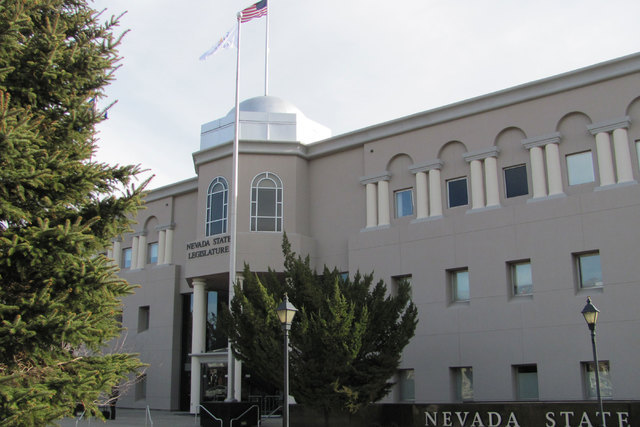Bill would do away with Nevada’s presidential caucus system

CARSON CITY — Nevada would scrap its caucus system for a presidential preference primary under a bill considered Wednesday by a Senate committee.
Another bill would open Nevada primaries in partisan races to all candidates, with the top two winners advancing to the general election.
Both were heard Wednesday by the Senate Committee on Legislative Operations and Elections. The committee took no action on either bill.
Senate Bill 421 presented by state Sen. James Settelmeyer, R-Minden, would replace Nevada’s presidential caucus system with a presidential preference election early in presidential election years. And it would move Nevada’s statewide primary election from June to February.
Settelmeyer said changing Nevada’s caucus to an early primary is “intended to increase voter participation in presidential elections.”
He said that the caucus process of picking a presidential nominee is confusing to Nevada voters and many are uncomfortable expressing a preference in public during precinct meetings.
“Less than 10 percent of citizens actually help select the leader of the free world,” Settelmeyer said.
“I like the process of early voting. I like the process of mail-in ballots,” he said. “I think we need to encourage voter participation.”
Under the existing process, presidential caucus meetings are held in late January or early February, as determined by national political parties.
The primary for state elections is in June.
County election officials raised concerns that having a statewide primary in winter and so soon after the holiday season would make it difficult to find election workers and meet other deadlines.
Another bill, Senate Bill 499, would create a “modified blanket” primary election system in Nevada, allowing all candidates regardless of party affiliation to appear on the ballot.
The bill is in stark contrast to Nevada’s existing partisan primaries, where only candidates of major political parties appear on the ballot and only registered voters of those parties get to cast a ballot.
Under the measure, Republican and Democratic candidates, as well as minor political party candidates and independents would run on the same primary ballot, and all eligible voters could vote.
The top two vote-getters would advance to the general election unless they are affiliated with the same major or minor political party.
In that case, the second-place finisher would not advance to the general election.
Instead, the name of the candidate who received the next highest number of votes would become a general election nominee.
Contact Sandra Chereb at schereb@reviewjournal.com or 775-687-3901. Find her on Twitter: @SandraChereb.

RELATED STORIES
Sandoval’s business fee hikes would hit small businesses, critics say
Assemblyman pushing for lottery at Nevada Legislature
Campus carry gun bill sent to Nevada Assembly floor
Sandoval challenges legislators to adequately fund education
Tax Day in Carson City about to change the debate
Nevada voter ID proposal brings contentious debate
See all of our coverage: 2015 Nevada Legislature.












